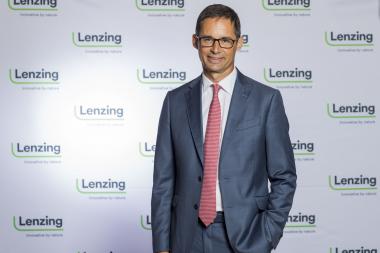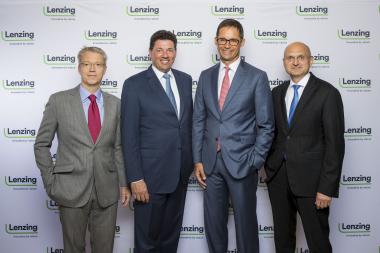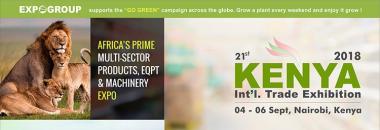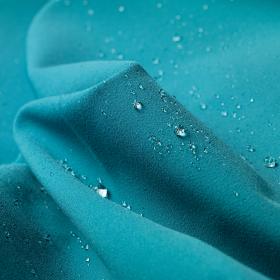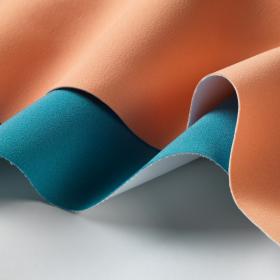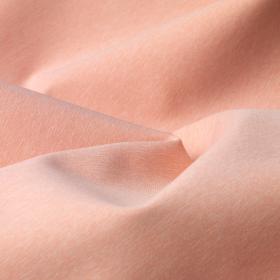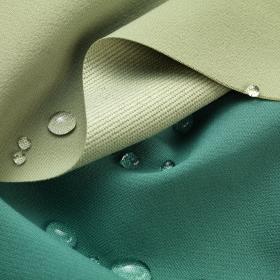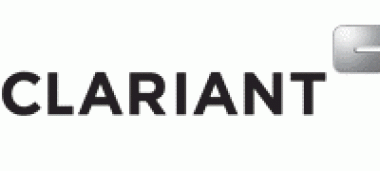Lenzing Group reports solid results in a demanding market environment
- Decline in revenue due to volatile standard viscose prices and currencies
- Prices for key raw materials still high
- New production line in Heiligenkreuz in start-up phase
- Backward integration into dissolving wood pulp to be strengthened via joint venture in Brazil
Lenzing – The Lenzing Group generated solid results in a challenging market environment in the first half of 2018. The decline in revenue and earnings compared with the first half of the previous year, which was the best half-year in the company’s history, was based on a mix of volatile prices for standard viscose and price increases for key raw materials, coupled with currency effects. The Lenzing Group’s strategic orientation with a focus on specialty fibers had a positive impact in this environment and is increasingly bearing fruit. The corporate strategy sCore TEN is being implemented with great discipline in order to expand the company’s offering of specialty fibers and even more extensively support customers and business partners.
Revenue declined by 6.4 percent compared with the first half of the previous year to EUR 1,075.4 mn. This decrease is primarily attributable to less favorable currency exchange rates. EBITDA (earnings before interest, tax, depreciation and amortization) decreased by 28.1 percent to EUR 194.8 mn, especially due to price increases for key raw materials and higher energy prices. The EBITDA margin fell from 23.6 percent in the first half of 2017 to 18.1 percent in the first half of 2018. EBIT (earnings before interest and tax) declined by 37 percent to EUR 128.7 mn, leading to a lower EBIT margin of 12 percent (H1 2017: 17.8 percent). The net profit for the period dropped by 39.3 percent from EUR 150.3 mn in the previous year to EUR 91.3 mn. Earnings per share equaled EUR 3.44 (H1 2017: EUR 5.55).
“So far, the financial year 2018 proved to be as challenging as expected, and market headwinds were clearly noticeable. In this market environment, we are satisfied with the solid results we report. We are proud that with our corporate strategy sCore TEN and the focus on growth with specialty fibers we show big steps in the right direction. The recently announced joint venture with Duratex is another important step in executing this corporate strategy,” says Stefan Doboczky, Chief Executive Officer of the Lenzing Group. “We will continue to implement our strategy with great discipline and are convinced that this will steadily improve the long-term profitability of Lenzing,” Doboczky adds.
Largest dissolving wood pulp line worldwide
In June, the Lenzing Group and Duratex, the largest producer of industrialized wood panels of the southern hemisphere, announced that they had agreed on the terms and conditions to form a joint venture to investigate building the largest dissolving wood pulp plant (single line concept) in the state of Minas Gerais, (Brazil). This decision supports the self-supply with dissolving wood pulp and the growth in specialty fibers, defined in Lenzing’s sCore TEN strategy. The joint venture will investigate the construction of a 450,000 t dissolving wood pulp plant, which is expected to become the largest and most competitive single line dissolving wood pulp plant in the world. The final investment decision to build the dissolving wood pulp plant is subject to the outcome of the basic engineering studies and the approval by the respective supervisory boards.
Even stronger focus on sustainable products
As a pioneer in sustainable fiber solutions, the Lenzing Group is committed to higher standards in the textile and nonwoven sectors. More than EUR 100 mn will be invested in sustainable manufacturing technologies and production facilities by 2022 in order to realize this vision. In line with the Group’s specialty strategy, another two milestones were set in the first half of 2018: Lenzing announced an investment of up to EUR 30 mn in another pilot line for the production of TENCEL™ Luxe filaments at the Lenzing site. In addition, the company also introduced the environmentally friendly process for the production of LENZING™ ECOVERO™ branded viscose fibers at its Chinese site. Both decisions contribute to better meeting the strong demand for environmentally compatible products.
Expansion of capacities
CAPEX (investments in intangible assets and property, plant and equipment) rose by 60.8 percent year-on-year to EUR 117.2 mn in the first half of 2018. This is primarily attributable to the capacity expansions in Heiligenkreuz (Austria) and Mobile, Alabama (USA) and the expansion of the existing dissolving wood pulp plant in Lenzing. The company is pressing ahead with these projects as well as with planning work on the construction of the next state-of-the-art lyocell production facility in Prachinburi (Thailand).
New brand identity
With the new positioning of its master brand and its product brands, the Lenzing Group started a new phase of branding and brand communication in the first half of 2018. Lenzing decided to carry out a new brand strategy in order to sharpen its company and product profile as a sustainable innovation leader for customers and partners along the value chain as well as for consumers. The most important pillar of this new brand strategy is a brand architecture with a focus on fewer brands and a strong message to consumers. With the TENCEL™ brand as an umbrella brand for all specialty products in the textile segment and the VEOCEL™ brand as the umbrella brand for all specialty fibers in the nonwoven segment as well as the new master brand, which was presented in March, Lenzing showcases its strengths in a targeted manner.
Outlook
The International Monetary Fund expects a further acceleration in global economic growth to 3.9 percent for 2018. However, growing protectionist tendencies in the political arena represent a source of uncertainty. Export-oriented companies in the Eurozone are faced with additional challenges from the currency environment.
Developments on the fiber markets should remain positive, but with continuing volatility. The rising demand for cotton should support prices despite the increase in production. Polyester fiber prices have stabilized after the increase in previous years.
The wood-based cellulosic fiber segment, which is relevant for Lenzing, should see further strong demand. After years of moderate capacity expansion in the viscose sector, significant additional volumes will enter the market in 2018 and 2019. As a result, standard viscose prices will remain under pressure. The Lenzing Group is very well positioned in this market environment with its corporate strategy sCore TEN and will continue its consistent focus on growth with specialty fibers.
The Lenzing Group still sees challenging market conditions for the second half of 2018. In addition to the price pressure on standard viscose, the prices of some key raw materials such as caustic soda are still at a very high level and exchange rates continue to be volatile. Our specialty fibers are expected to continue their very positive development. In this context, the Lenzing Group is satisfied with the earnings development to date, but underlines its estimate that the results for the year 2018 will be lower than the outstanding results in the last two years.


